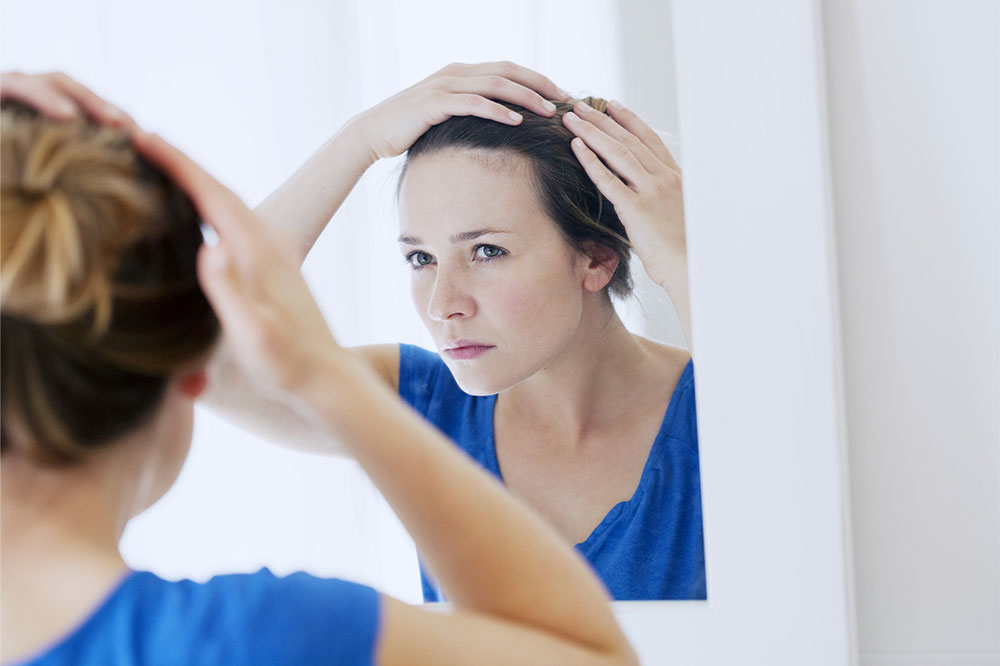Best Vitamins for Preventing Hair Loss
Hair thinning is a common phenomenon that can be brought on by factors like aging, health issues, and even stress. In fact, vitamin and nutritional deficiencies have also been linked to hair loss. This is why hair problems can be managed with better food choices and adequate nutrient intake. Further, one may be able to prevent hair thinning, retain their volume, and improve their hair quality by adding vitamin-rich sources to their meal plan.

Best vitamins for hair growth
Hair requires protein and vitamins A, B, C, D, and E that help strengthen the strands, making hair seem healthier. While vitamin A stimulates hair and tissue growth, vitamin C helps develop collagen, an essential part of the hair structure. Additionally, vitamin D can boost hair follicle growth to pave the way for new strands. Apart from strengthening the hair, vitamins help prevent hair thinning and hair loss. So here are some of the best vitamins for hair loss prevention:
Vitamin A: This is a group of compounds that includes retinal, retinol, retinoic acid, and provitamin A carotenoids. Vitamin A helps secretion of sebum, which moisturizes the scalp and keeps the hair healthy. The deficiency of this vitamin can cause hair loss, making it one of the crucial hair loss vitamins. However, excessive consumption of vitamin A can also trigger hair loss. Vitamin A-rich foods are leafy greens like spinach, kale, and broccoli; orange vegetables such as pumpkin, carrots, and sweet potatoes; and yellow vegetables like squash. Adding these foods can help promote hair growth. Animal products such as eggs, milk, and yogurt also contain this nutrient. In addition, cod liver oil is an excellent source.
Vitamin B: Complex B vitamins are crucial for hair growth and are some of the best vitamins for hair loss prevention. Vitamin B complexes like B7 (biotin) and B12 effectively strengthen the hair. A balanced meal plan should consist of vitamin B-rich foods like whole grains, fish, meat, nuts, eggs, and avocados to prevent thinning of hair.
Biotin: Also referred to as Vitamin B7, biotin is a complex B vitamin that helps achieve hair growth. It is one of the prominent female hair loss vitamins as the deficiency of this nutrient has been associated with complaints of hair thinning. Biotin creates red blood cells to carry nutrients and oxygen to the scalp and hair follicles. It also stimulates the production of keratin, which is an essential component of hair. One can get adequate biotin from milk, bananas, eggs, almonds, and sweet potatoes.
Vitamin C: Besides boosting one’s immunity, vitamin C can make hair stronger. It is a powerful antioxidant that stimulates hair growth and enhances blood circulation, making it one of the best hair loss vitamins. When blood circulation in the scalp increases, the hair follicles are stimulated; this promotes hair growth. Adding rich sources like peppers, guavas, strawberries, and citrus fruits can help one maintain healthy hair.
Vitamin D: This is an essential vitamin for hair loss prevention. It is metabolized in the skin with the help of cells called keratinocytes. When there is vitamin D deficiency in the body, the keratinocytes (responsible for the production of keratin) in hair follicles cannot trigger growth, leading to thinning hair. One can add sources rich in vitamin D like cod liver oil, fatty fish, fortified foods, and mushrooms to their meal plan.
Vitamin E: This is a potent antioxidant that restricts oxidative stress and is one of the best vitamins for hair growth. The best sources include almonds, sunflower seeds, avocados, and spinach.
Other key nutrients
Iron: Iron plays a pivotal role in hair growth, and its deficiency is linked to hair loss in females. This micronutrient enhances circulation, thereby helping carry oxygen to the scalp. It is essential to consume foods having high iron content, like red meat, lentils, clams, and spinach. One should consult a doctor before adding an iron supplement to their meals.
Keratin: Keratin is a protein that helps strengthen the skin, nails, and hair. While the body naturally produces this protein, taking keratin supplements can boost its production. One should opt for protein-rich foods such as beans, eggs, fish, and meat. However, going overboard with keratin supplements can hamper hair growth.
Zinc: This is a trace mineral that the body needs in small amounts. Zinc plays a significant function in hair tissue growth. Foods that contain zinc are beef, spinach, oysters, pumpkin seeds, and lentils.
Omega-3 fatty acids: These are healthy fats that help strengthen hair strands. The best sources of omega-3 fatty acids include tuna, salmon, sardines, mackerel, walnuts, chia seeds, and flaxseed meals.
So, nutrient-dense food is the best way to trigger hair growth. Hair problems can be brought on by failure to maintain a balanced regimen full of vitamins, minerals, and nutrients. However, one must consult a doctor and a nutritionist before making changes to their meal plan and opting for vitamin or mineral supplements.


